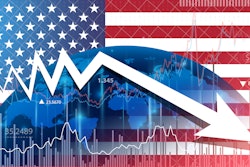
Manufacturing CEOs are stepping into 2024 overwhelmingly optimistic about the future and committed to investing in their operations and in talent. Those are the conclusions of Xometry’s year-long series of polling, which shows CEOs are more adept than ever at navigating constantly changing geopolitical and economic environments. They’re accelerating investments in Artificial Intelligence, automation and robotics, while also up-leveling the skills of their current employees and recruiting highly trained workers.
“Manufacturing today is a high-tech industry, and CEOs are investing in AI and talent to pivot more quickly than in generations past to meet the needs of the future,” says Randy Altschule, CEO at Xometry. “Modernizing their operations is their #1 priority followed closely by reshoring – two complementary efforts to create locally resilient supply chains.”
Key Takeaways:
- AI is the key to modernizing the manufacturing industry. Manufacturing CEOs say AI will play a significant role in their company in the next one to two years. Of the CEOs who have already implemented AI, more than 70% have seen a significant ROI in key areas such as supply chain management, quality control and procurement.
- Reshoring will continue to trend upwards with 76% of manufacturing CEOs having successfully reshored some or all of their operations throughout 2023 – a move accelerated by federal tax incentives and initiatives such as “Build America, Buy America.”
- While the automotive industry is primed for growth and innovation in 2024, EV manufacturers may be taking their foot off of the accelerator when it comes to electric vehicles. Xometry’s groundbreaking Automotive Survey finds that 84% of automotive executives said current production timelines and waning consumer demand may make it difficult for the industry to meet the Biden Administration’s goals for the years ahead. Among auto executives’ chief concerns: battery innovation, charger compatibility and slowing consumer adoption, according to the survey.
- Though EVs may be hitting a road bump for now, companies are focusing on a net-zero emissions future and taking proactive action to limit their greenhouse gas emissions across their industrial supply chains. Fifty-two percent of CEOs view climate change as an existential threat caused by human activity. 2024 will see the actualization of companies making sustainability a business goal with more investment in measuring and tracking tools to prioritize decarbonization of their operations.
















